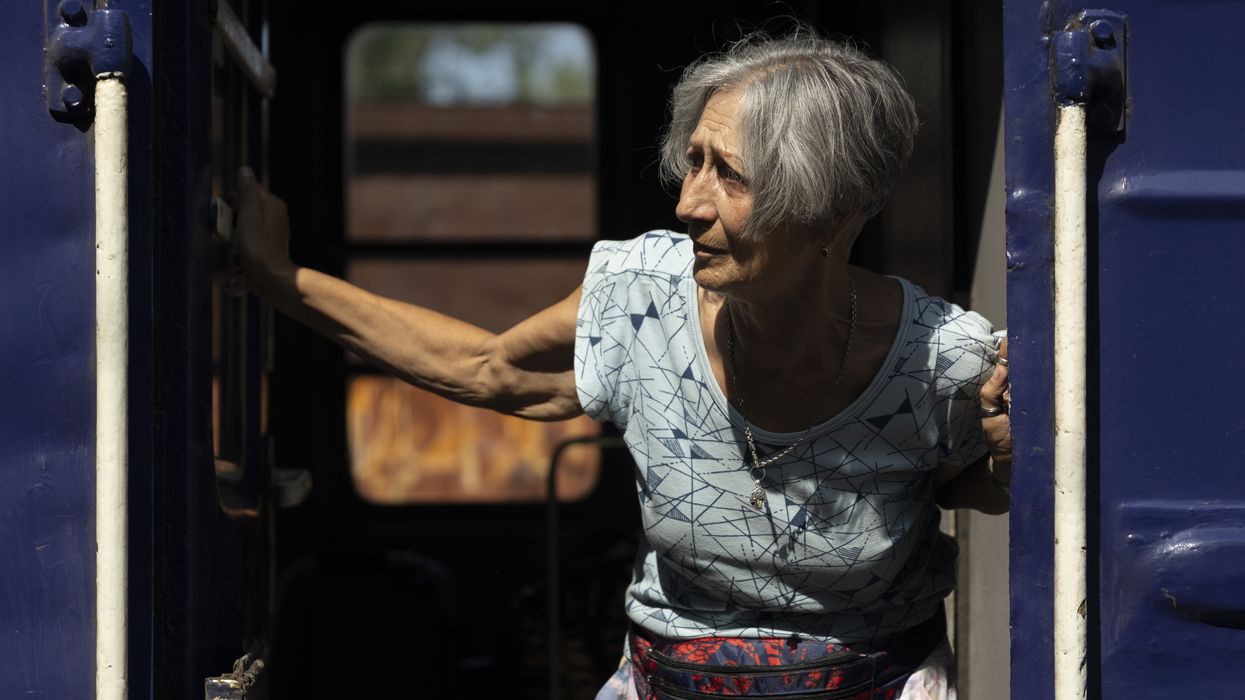Kilaberia is an assistant professor at New York University’s Silver School of Social Work and a public voices fellow with The OpEd Project.
We know the toll that war has on youth, but older adults are suffering displacement, too.
We have talked about age-friendly cities, age-friendly health care systems, age-friendly universities, age-friendly workplaces dementia-friendly communities. We are not talking about age-friendly or dementia-friendly humanitarian responses.
Tomorrow is Ageism Awareness Day and it offers us the opportunity to draw attention to the impact of ageism, particularly in the many war zones around the world.
The United Nations and its partners set up play centers for children transitioning from place to place while fleeing Ukraine, for respite and a little joy. Volunteers left baby carriages, prams and strollers for fleeing Ukrainian mothers at the border. But I did not come across news about a respite center for older people fleeing. Or volunteers leaving walkers, canes and wheelchairs for older refugees at the border — at least not as ubiquitously as for youth.
Before Gaza, Ukraine and Sudan, there were Syria, Iraq and Afghanistan. And other wars before that. In all of them, older people were displaced.
Larissa Andreeva, 76, fled Ukraine with her family but then got separated, ending up in a village in Moldova. From there, she was forced to move to a transitional refugee shelter in the capital. Alone and isolated, she did not always share a language with other refugees who came and went. After seeking permission from the shelter director, Andreeva cordoned off her bed with fabric dividers for some “privacy” as weeks turned into months and months into one and a half years during the height of the Covid-19 pandemic.
Dementia did not make things easier: One day, Andreeva walked out of the refugee shelter, got lost and was not able to say who she was or where she lived when asked. She was safely brought back and did not dare venture out again. Then the refugee shelter closed. She was moved to what seemed like a group home. Younger residents there shunned her because she was old and confused.
In 2024, a family friend helped her relocate to Georgia (the country) where her own family, temporarily living in the Czech Republic, was able to place her in a nursing home. Andreeva had already been an internally displaced person in Georgia three decades prior, suffering bodily harm and lifelong health consequences.
Risks from displacement can be cumulative. Older people in the United States have shared that they feel invisible in stores, restaurants, theaters and elsewhere in peacetime. Public health professionals may recall the decision-making around catastrophe medicine in Italy during the pandemic that prioritizes saving younger people over older people based on limited resources. Ageism is potent in its power to obscure the intersectionality of old age and refugeehood in wartime.
Forced displacement increases risk of abuse and neglect, especially of older women, persons with disabilities and older LGBTI persons, according to the UN Refugee Agency.
A cab driver taking Andreeva to the refugee shelter overcharged her manyfold, and what she had in her purse was all that she had in the world. She worked as a yard hand in the Moldovan village where she was first sheltered to earn her keep. Nobody may have made physical labor an explicit condition of her stay, but nobody told her she did not need to work.
I am not old, but I lived in a retirement community as a young person, and learned about older people directly from them. I am safe now, but I was displaced in an armed conflict in Georgia and suffered the loss of family and friends who were murdered. I not only grew up with displaced older people, I’ve worked with older refugees in a refugee resettlement program. I have focused on age-friendly health systems and elder mistreatment in my work.
Somehow, the neglect of older refugees seems flagrantly age-unfriendly, and translates to elder abuse, except there is no clear agent perpetrating the abuse. It’s the war. It’s the politicians and their decision-making. It’s the separation from the family. It’s the refugee shelter that closed.
Older refugees with dementia and other health issues are no less vulnerable than children. As women’s rights advocate and social worker Ollie Randall noted six decades ago, “old persons in need of help are not apt to be naturally appealing, as is a helpless child … In the field of social action, we have tended to place our hopes—and our dollars—on youth.”
People 65 or older are expected to rise to 17 percent of the world population by 2050. Given internal and cross-border displacements in past, ongoing and likely future regional wars, older refugees should be everyone’s concern.



















Trump & Hegseth gave Mark Kelly a huge 2028 gift